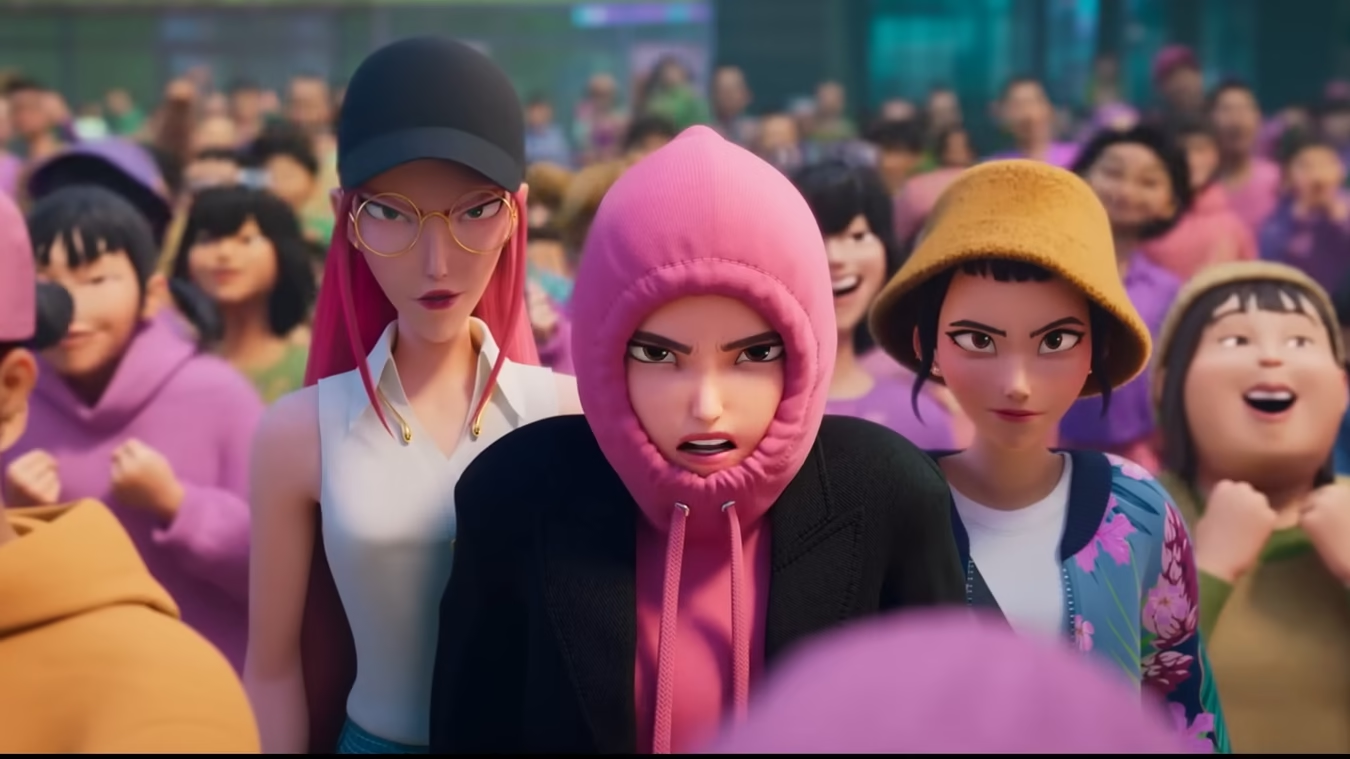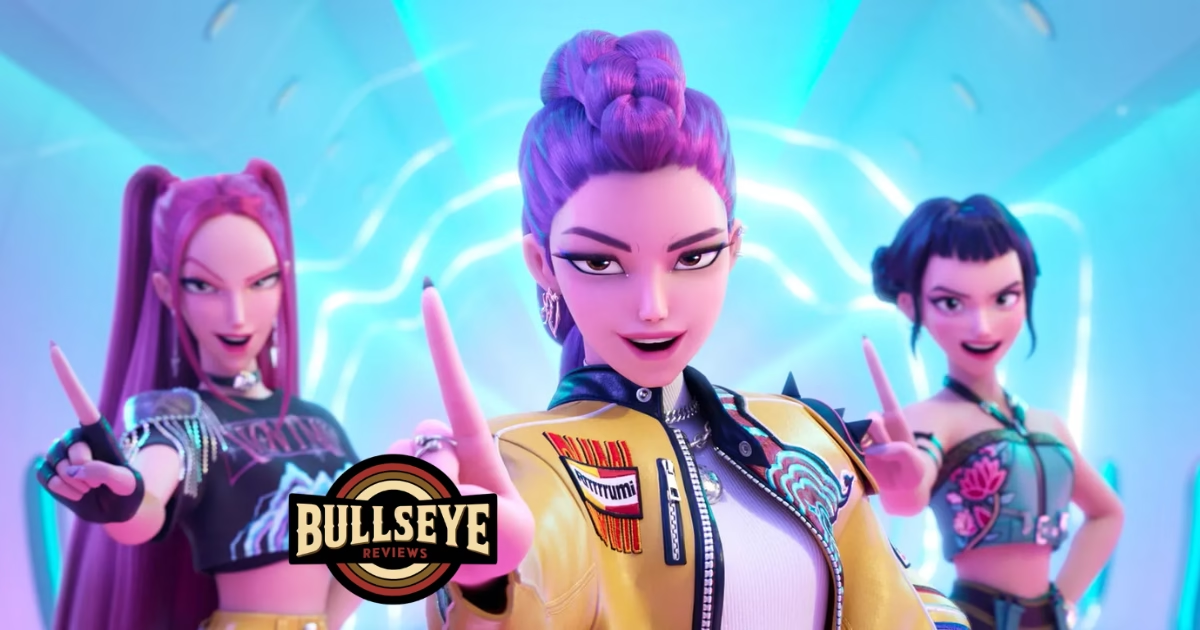Introduction – A High-Concept K-pop Fantasy with Bite
When a movie’s premise involves a K-pop girl group moonlighting as demon hunters, it’s easy to assume the worst: gimmicky storytelling, style over substance, or a thinly veiled commercial for the genre’s global domination. But Kpop Demon Hunters, Netflix and Sony Pictures Animation’s 2025 animated musical-fantasy, directed by Maggie Kang and Chris Appelhans, defies those assumptions.
Led by a dynamic trio—Rumi (Arden Cho), Mira (May Hong), and Zoey (Ji-young Yoo)—the film blends vibrant visuals, banger soundtracks, and an emotionally resonant storyline into a dazzling 99-minute ride. It’s fun, heartfelt, and surprisingly thoughtful, with just enough grit beneath the glitter to make it more than a novelty.
Story and Structure – Simple Setup, Stylized Execution
At the core of Kpop Demon Hunters lies a straightforward mythos: generations of women have used music to maintain a magical barrier—the Honmoon—to keep demons from invading the human world. In the present day, that duty falls to Huntr/x, a chart-topping K-pop group who must balance fame with saving humanity.
Familiar Arcs, Fresh Flair
The arrival of a rival boy band—Saja Boys—conceals a darker agenda. Led by the mysterious and charming Jinu (voiced by Ahn Hyo-seop), these demonic idols aim to destroy the Honmoon and revive their lord Gwi-Ma (a scene-stealing Lee Byung-hun).
Though the overarching plot follows predictable beats—battle of the bands, inner turmoil, a forbidden romance—the film earns points for how it frames these tropes. The narrative is infused with K-drama touches, witty genre nods, and heartfelt character beats, particularly around Rumi’s hybrid identity and vocal crisis.
Visuals and Animation – Spider-Verse DNA Meets K-pop Aesthetic
Sony Pictures Animation, known for Spider-Man: Into the Spider-Verse, continues to push the medium here. From stylized concert sequences to fluid demon battles and hilarious visual gags, the film is a visual feast.

Korean cultural elements—like Seoul’s Namsan Tower, Bukchon Hanok Village, and traditional folklore creatures—are woven naturally into the background art, adding texture without feeling tokenistic.
Music – Certified Bops with Emotional Weight
A Soundtrack Worth Charting
With songs like Golden, How It’s Done, Soda Pop, and Free, the soundtrack is more than an accessory—it’s a narrative engine. Each track aligns with the film’s emotional beats and tonal shifts, whether it’s a full-blown stadium performance or a quiet duet between Rumi and Jinu.
Kudos to the casting of real artists (EJAE, Audrey Nuna, REI AMI) for the vocal performances. Their delivery elevates the music from catchy to cinematic.
Even the villains get their musical moment, with Soda Pop by the Saja Boys proving that even demonic adversaries can drop chart-toppers.
Themes – Sisterhood, Identity, and the Price of Fame
Beneath its stylized surface, Kpop Demon Hunters explores meaty themes:
- The pressure of perfection in the public eye
- The duality of persona vs. self
- The power of female friendship as a weapon against both internal and external demons
Verdict – Come for the Music, Stay for the Heart
Kpop Demon Hunters is the rare high-concept animated film that commits fully to its premise without losing sight of its emotional core. Its shortcomings—namely underdeveloped side characters and rushed subplots—are minor compared to its many strengths.
It’s vibrant, quirky, and refreshingly earnest. And in a summer of sequels and remakes, it stands out as something truly original.
Final Verdict: ★★★★☆ (4/5 stars)
The movie is now streaming on Netflix.

